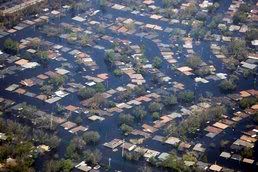The Changing Face of Timeshare Sales
Friday, September 16, 2005
Both resorts and resellers use a variety of timeshare sales tactics. What type of advertising is most effective for attracting buyers to a timeshare property?
Here’s three different examples of common methods that have been used in the timeshare sales business:
1. A month or so ago, the blogosphere was buzzing with the story of the “timeshare spammer“. This man sent out millions of unsolicited emails promoting some sort of timeshare. Peter Moshou pled guilty to violating the new CAN-SPAM act, and was one of the first people to be prosecuted for a violation of this nature. He now owes several million dollars in fines, and is embroiled in a lawsuit from internet service provider Earthlink.
2. Since then, timeshare marketers have moved away from sending bulk spam emails, but they’ve recently been getting more aggressive about direct mail marketing. Invitations to timeshare presentations are mass-mailed to thousands of people every day. The same tired premise plays itself out; the mass mailings inevitably allude to a free week at a resort, but they fail to mention that a “90-minute” timeshare sales ordeal is a prerequisite of this enchanting getaway. Resellers rarely use direct mail, unless they have somehow obtained a list of timeshare owners.
3. In a particularly unique display of ingenuity, some timeshare sales companies advertise on billboards. These are strategically placed near high-demand resort areas, especially in places where there is a high concentration of resorts offering timeshare. While I myself have seen no figures on the subject, employees of these companies have been known to disclose that billboard advertising in the right setting can help owners sell their timeshares.
These three timeshare sales tactics have one thing in common: they can help drive traffic to an online inventory of timeshares for sale.
That should be good enough, right?
Wrong. Unsolicited emails, direct mail and billboards, like print advertising and television commercials, reach a lot of people. However, they don’t reach people whose sole concern is buying and selling timeshares.
As an example, consider a newspaper’s classified ads page. This part of the paper is read daily by people looking for a job, checking out apartments, buying a car, looking for a good plumber, or browsing the personals. The traffic that the classified page gets is not targeted.
Imagine you are a prospective timeshare buyer. You want to find an inventory of timeshare properties on the internet. To do this, you go to a major search engine and type in search terms, like “buy timeshare”. The websites that come up in the top five search results for “buy” terms receive what is known as targeted traffic. Almost all traffic driven to these sites is composed of people interested in buying timeshares. Only search marketing can deliver this kind of exposure.
Quite literally, search marketing offers people exactly what they are searching for. However, just because a company is #1 in the search results doesn’t mean it’s legitimate. As I’ve said many times, it is absolutely vital to scrupulously research any company you intend to have dealings with.



